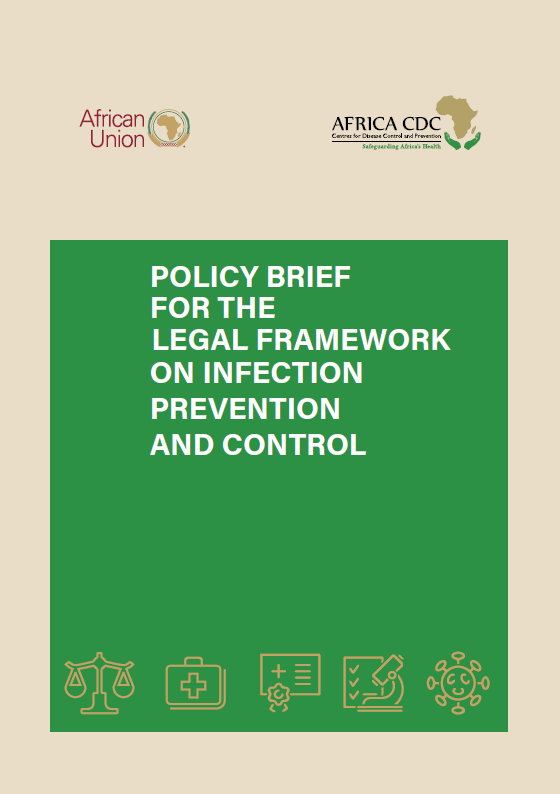1. INTRODUCTION
The Infection Prevention and Control (IPC) Legal Framework comes before the Specialized Technical Committee on Health and Drug Control for adoption and endorsement. The IPC Legal Framework is designed to guide Member States in the review and strengthening of laws and policies that support IPC at both the national level and in healthcare facilities. In developing this IPC Legal Framework, the Africa Centres for Disease Control and Prevention (Africa CDC)
is furthering its mandates to harmonize disease control and prevention policies and promote the prevention and control of diseases by building capacity of public health institutions in Members States.
2. RATIONALE FOR THE IPC LEGAL FRAMEWORK
In October 2017, Africa CDC officially launched its Framework for Antimicrobial Resistance (AMR) Control, 2018-2023. One major component of this strategy involves decreasing the burden of antimicrobial resistance, particularly in healthcare settings. In April 2018, Africa CDC held a workshop with Member States and partners to define priorities for implementing the Africa CDC Framework for Antimicrobial Resistance Control. A major recommendation was that Africa CDC should define minimum for Infection, Prevention and Control (IPC) standards for healthcare facilities. The minimum standards should include the implementation of IPC structures and processes at the national, sub-national, and facility level, including a system for surveillance of healthcare–associated infections and antimicrobial resistance. In April 2019, Africa CDC and World Health Organization, held a technical consultation with Member states to develop the minimum standards and guidelines for health care facilities and developed a plan for IPC for African Union member states. A key outcome of the meeting was to develop a legal framework that would guide and underpin IPC operations within Africa and would capture areas such as accountability mechanisms and resources required for implementation, leadership structure, monitoring and evaluation. Accordingly, Africa CDC initiated a project to develop a legal framework for IPC that will guide the development or strengthening of IPC programmes in Member States and contribute to the establishment of a socio-professional environment adapted to the requirements in this area.
